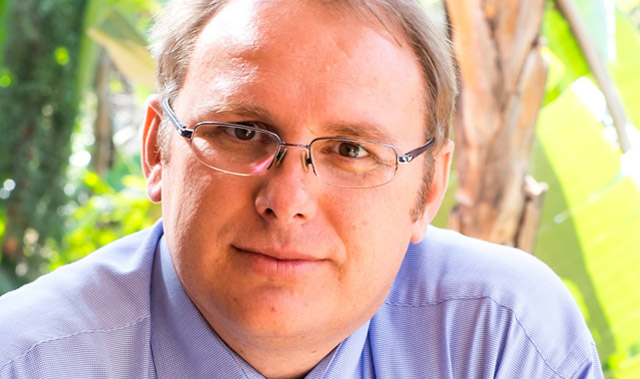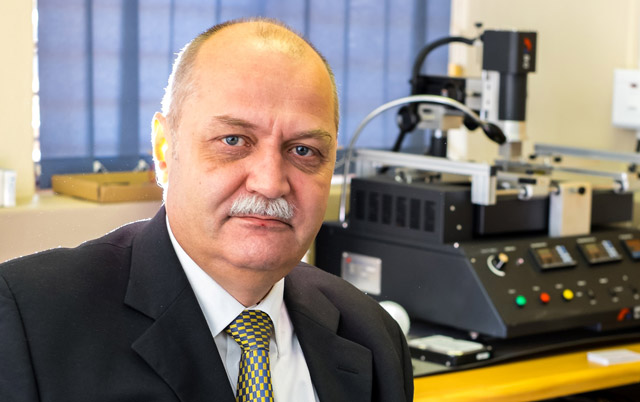
Keystone Electronic Solutions, a contract design engineering firm based in Pretoria, is hiring. The only problem is, it can’t fill the vacancies it has for engineering graduates because, according to co-founders John Eigelaar and Ivan Popov, the people coming out of South Africa’s technikons and universities often don’t have even rudimentary knowledge of cornerstone subjects like mathematics.
Eigelaar and Popov say there has been a marked deterioration in the quality of engineering and computer science graduates in the past five years, and they believe this can be traced back to a collapse in the quality of South Africa’s school education system.
People with supposedly reputable engineering degrees can’t answer basic questions, yet they’re being allowed to graduate, according to Eigelaar.
“The problem is not necessarily a lack of qualified people — there are plenty of qualified technicians, for example,” he says. “The problem is the candidates we interview do not have basic maths and science skills. These are university graduates, university of technology graduates, and guys with national diplomas in electrical engineering and computer science.”
Eigelaar and Popov say they came to the realisation that they could no longer trust that the qualifications people presented were sufficient to ensure they had what it took to become engineers, so they implemented a test to determine if these prospective employees had a basic understanding of concepts in software and hardware engineering. The test determines whether the graduates can get their heads around “basic standard eight or matric maths and physical science – very simple calculus and science questions, and simple algebra”, says Eigelaar. Most struggle with the test. Some, including those with university degrees, aren’t able to answer a single question.
“If you can’t grasp or don’t understand the fundamentals of maths, everything you learn at university level is just going to be an exercise you’ve learnt. The problem-solving skill is never developed, which is a big problem if you are an engineer,” he says.
“You get a feeling, speaking to diploma students, that these guys were coached through a course, coached to pass an exam rather than being taught the curriculum and then being tested on that.”
Popov says government’s decision to rename technikons as universities (of technology) was a “big mistake”.
“It gives the impression you’re going to a university, but these institutions don’t provide the basic skills and training to become a technician. Technikons struggle to find places for their students to do practical training, so they just give them a piece of paper and put them out on the street.”
Eigelaar says that in the past two years, Keystone has not been able to find a single graduate worth hiring and training. “It’s not that we don’t want to take people through practical training, but we cannot find anyone with sufficient basic knowledge to take them through that process. You have to feel for them. It’s not cheap to get the qualification. They are good guys. It’s a problem of a substandard education.”
Lack of proficiency in English is also a big problem. Popov says technikon graduates in particular struggle to read and write in English. “This makes it difficult to put them in a design environment.”
Eigelaar says South Africa is reaping the whirlwind of not tackling fundamental problems in basic education when they first manifested themselves. “If your school education is not what it should be, it has a knock-on effect. That has reached us now. Eight years ago, it was just a schools issue; now it’s throughout the skills chain.”

He says government tends to focus only on pass rates. “This single number is held up as the be all and end all of the education system, which is absolutely wrong. The number of people you push through your education system has nothing to do with the quality of it.”
Even university engineering graduates struggle with simple calculus. “We can no longer trust some university degrees,” says Popov. “No one university in South Africa is exceptional, but some are doing better than others.”
“You could probably fake your way through not having a good maths and science foundation if you become a ‘spreadsheet tiger’ and your job is to be a junior project manager in a telecoms company, but when it comes to doing actual engineering, you won’t be able to fake it,” adds Eigelaar.
“The big problem is, even if you start tomorrow and you have a silver bullet and you fix your maths and science, your first university intake guys will only be there in 12 years and your first graduates in 15 years. We can only sort this out in 15 years’ time.”
To try and address the crisis, Eigelaar says one immediate solution is having independently administered entrance exams at technikons and universities regardless of what prospective students achieved in matric. If they fail, they must attend a bridging course that brings them up to a level where they are able to start their university studies and not be left behind. “And don’t accept people who are not good enough,” adds Popov.
Eigelaar warns that South Africa’s engineering base is in danger of disappearing unless the crisis is addressed.
“In the past 10 years, we have seen the pool of skills becoming smaller and smaller. Once you’ve lost that, you can’t rebuild it. We are in danger of going from a place where aeronautical engineering was a viable career, where we could build planes and fighter jets, to an environment where the skills for doing that have disappeared.
“Our e-tolls system should be been developed and designed here,” says Popov. “That was a few billion rand spent on equipment. It would have been such a boost for this industry.” — © 2015 NewsCentral Media

